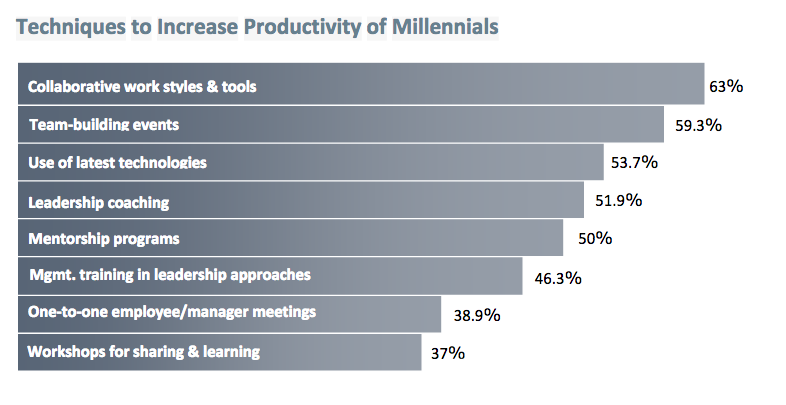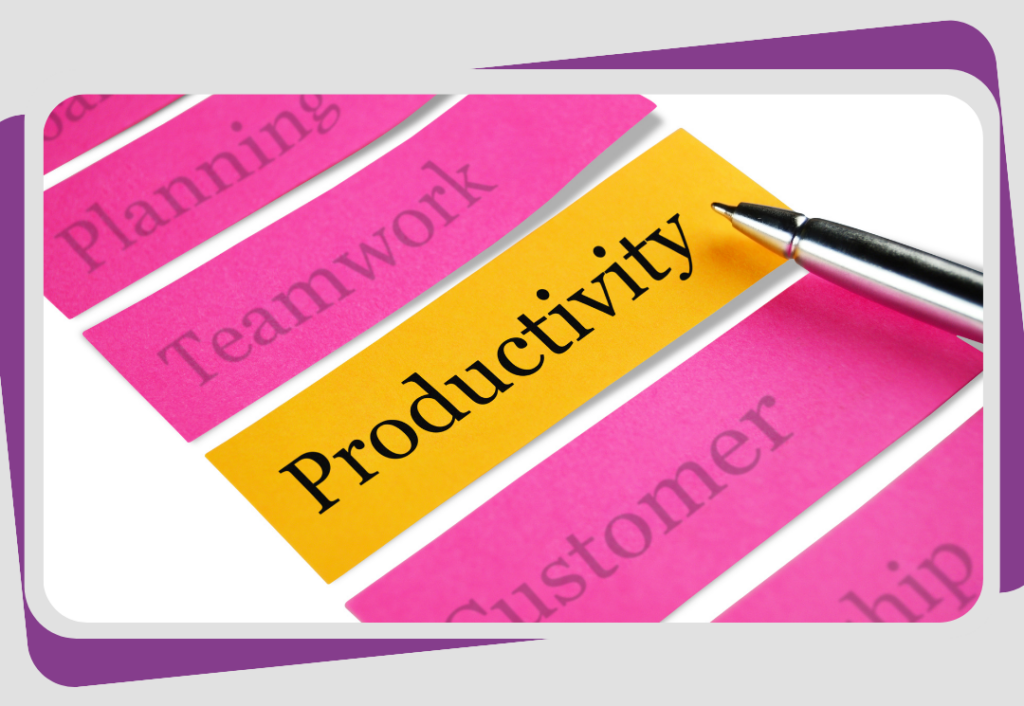 Since 2008, Next Step has provided consulting and advisory services to client companies with multi-generational workforces–managers and employees ranging in age from 19 to 92 enabling clients to achieve greater cohesion and productivity across the generations
Since 2008, Next Step has provided consulting and advisory services to client companies with multi-generational workforces–managers and employees ranging in age from 19 to 92 enabling clients to achieve greater cohesion and productivity across the generations
All leaders and employees must become familiar with the unique perspectives, needs and motivators of each generation, and be willing adapt their own work styles and actions to achieve maximum productivity.
Who Makes Up the Multi-Generational Workforce?
The multi-generational workforce consists of four distinct generations:
- “Stabilizing” Traditionalists, born prior to 1946
- “Transformational” Baby Boomers, born between 1946 and 1964
- “Entrepreneurial” Generation X, born between 1965 and 1980
- “Always on” Millennials, also called Generation Y, born between 1981 and 2000
Nordic Innovation Path to Market
In a recent study of small, mid-size, and large companies across all industries, almost three-quarters (72.3%) of the respondents acknowledged challenges in working with colleagues or managers from another generation. The most common challenge identified was a difference in communication style (reported by 79.6% of the survey respondents). Other challenges cited are noted below.
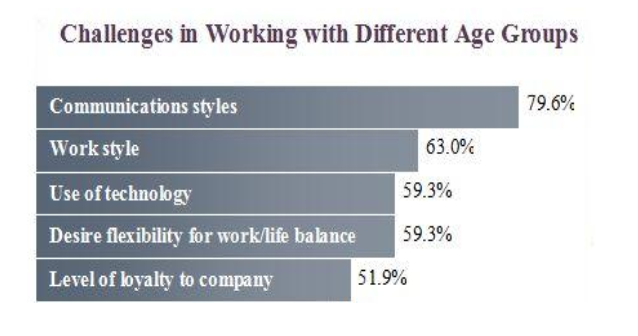
Communicating Across the Generations
Differences in communication styles apply to all generations, but the largest divide is found between Millennials and the older generations. This is increasingly relevant because 75 million Millennials will enter the workforce over the next three years.
Often, younger employees require clear communication of highly specific information in order to successfully complete assignments. Managers of Millennial employees frequently complain about the amount of extra time required in delegating seemingly simple tasks and following up regularly to ensure milestones are met.
In order for a typical Millennial worker to fully commit to an assignment and take ownership of its completion, he or she requires not only clear directions and milestones but also an understanding of the overall context for the task. Millennials tend to become energized by visions of the future. Thus, understanding how their roles contribute to the big picture usually results in a very high level of engagement and enthusiasm, with outcomes that typically surpass management expectations.
Younger workers are best motivated by three factors: challenges, competitions, and causes that resonate personally with them. When managers assign tasks to Millennials without leveraging one or more of these motivators, they risk employees becoming disengaged and unmotivated, ultimately leading to a turnover.
Unless their assignments feel engaging, challenging and part of the overall plan, Millennials are unwilling to subordinate their personal plans (vacations, time off, weekends, family commitments) to meet work deadlines or completion dates. These young workers are capable of performing excellent work—but only if assignments are communicated clearly and motivating factors are applied effectively.
Millennials Bring Competitiveness and Innovation to the Workplace
Baby Boomer and Gen X employees frequently observe that Millennials’ creativity, combined with their technological prowess, adds tremendous value to the workplace.
In addition, Millennials’ social, collaborative nature encourages others in the organization to adopt new technologies for communication and collaboration—driving a significant shift in how companies operate.
Young workers’ positive energy and innovative ideas provide significant opportunities for companies to achieve greater competitive advantage in the market. In a recent study by HCI, 80% of Fortune 100 companies have adopted strategic initiatives to attract recent college graduates and develop experienced Millennial employees into future leaders.
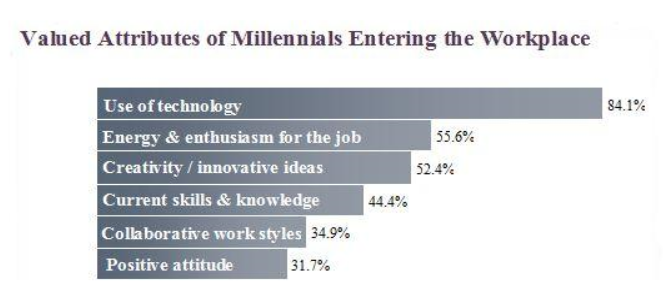
Achieving Maximum Productivity from Millennials in the Workplace
While Millennials bring great creativity, innovative ideas, and technological know-how to the workplace, they can also create challenges.
According to a recent Next Step survey, the most commonly reported obstacle is Millennials’ preference for digital communication (i.e. email, IM, and SMS versus phone and face-to-face).
Another common challenge in working with Millennials is their rejection of existing work norms and traditions. As mentioned previously, Millennials are willing to deliver results, but they require certain factors for motivation, including an understanding of the overall context of their work.
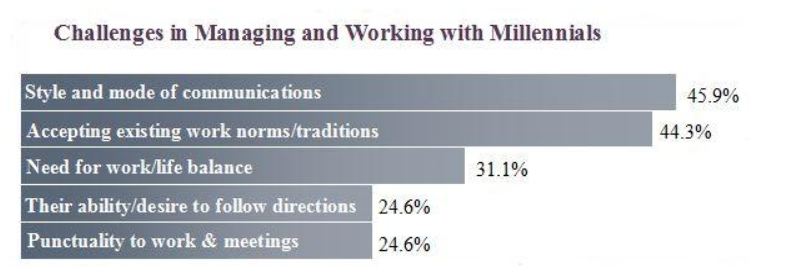
Best Practices for Engaging Millennials
Next Step has identified several best practices for maximizing results from Millennials. These practices are applicable to multi-generational teams across all industries. They are listed below from most important to least important:
- Give regular feedback and frequent praise for accomplishment of even small milestones
- Create and maintain a fun, collaborative working environment
- Encourage open communication and discussion of communication mode and style
- Ensure work assignments include the “big picture” and allow for collaboration
- Establish career development and mentoring programs, and ensure Millennials have challenging assignments
Market Leadership through a Multi-Generational Workforce
The diversity, creativity and skills of a multi-generational workforce will propel an organization to leadership today and in the future. To maximize success and productivity from a diverse team, top companies have implemented a variety of programs, as reported in Next Step’s study.
Techniques to Increase Productivity of Millennials
